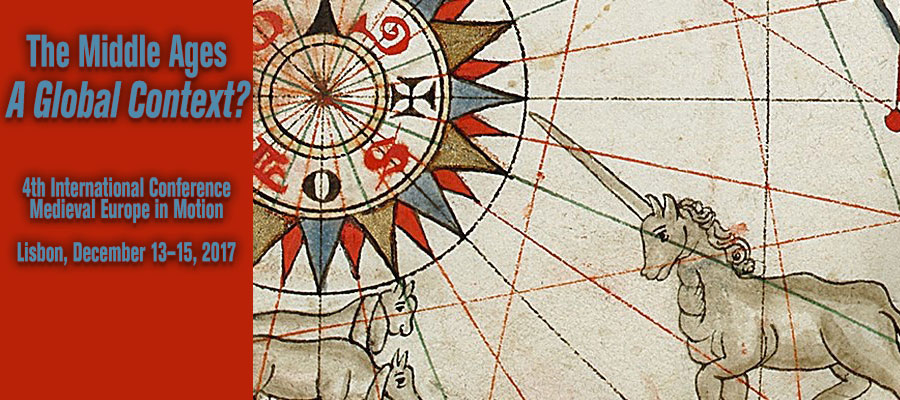The Middle Ages: A Global Context?, 4th International Conference, Medieval Europe in Motion, Lisbon, December 13–15, 2017
In December, as the third year of its six-year Strategic Project draws to a close, the Institute for Medieval Studies – whose research groups have been working around our main theme, “People and Knowledge in Motion: Medieval Portugal in Trans-European Networks” – is hosting a Conference aimed at bringing together scholars from around the world in order to discuss and reassess the research undertaken in the Institute and in the wider academic world on mobility, the circulation of models, and phenomena of a global nature during the Middle Ages.
In the course of the last three years, researchers specialising in the areas of History, History of Art, Archaeology and Literature, have developed their research with a strong emphasis on the question of the circulation of men and women, ideas, models and artefacts as mirrors of a medieval reality in which mental, symbolic and physical mobility seems to correspond less and less to the ancient perceptions and stereotypes of Medieval Men and Society as characterized by stillness and immutability. Furthermore, work in the Institute has raised additional questions and problems intimately connected with the topics being studied, but also very much in line with current historiographical trends.
For this reason, the organizers of the 4th International Conference on Medieval Europe in Motion deemed it appropriate to take our principal concern a step further and propose as its main subject the question whether or not it is possible to speak of a Global Middle Ages.
The Conference will seek to provide a forum for scholars from all disciplines who are willing to examine this topic. We invite participation from graduate students, early-career researchers and senior scholars. Papers are warmly welcome whether in English, Portuguese, Spanish, French or Italian.
The three sections of the Conference will be:
- Debating the Global Middle Ages: Theoretical and Historiographical Approaches;
- Texts, Images and Representations;
- Territories and Powers: a “Glocal” Perspective.
Possible topics may include, but are by no means restricted to, the following:
- approaches to sub-global, semi-global and pan-global concepts and the discussion of contact, exchange, interaction, circulation, integration and exclusion;
- analysis of concepts and case studies concerning diffusion, outreach, dispersal and expansion;
- approaches to concepts of impact, reception, acceptance, transformation and reform.
